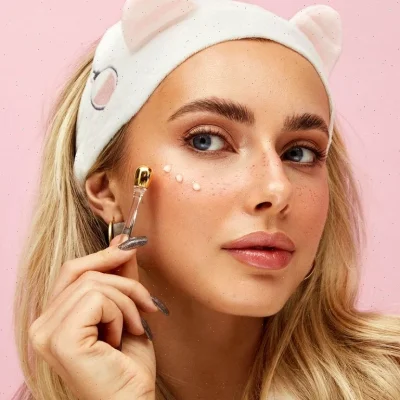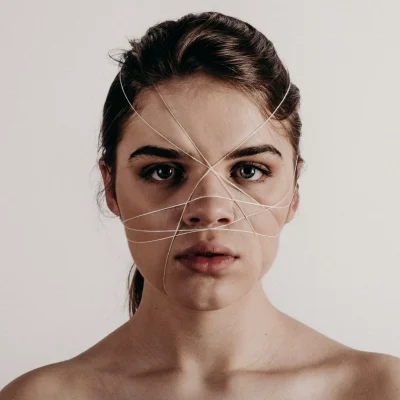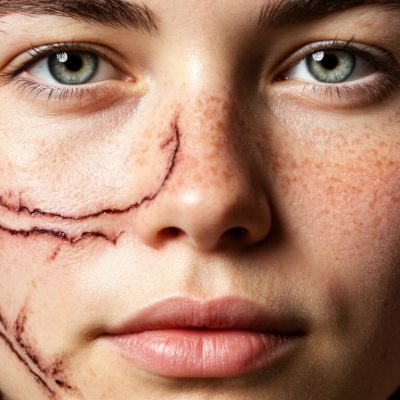I remember at 25 spending half my salary on luxury creams, yet my skin remained dull. The turning point came when my cosmetologist said, “You’re feeding your skin from the outside, but it’s starving from within.” Now, with a nutritionist diploma and 8 years of practice, I know for sure: true beauty begins with cellular nutrition.
Why is Caring for Cells Important?
A new trend in cosmetology is cellular beauty — beauty at the cellular level. It means that the skin’s appearance directly depends on the state of its cells, which can suffer from many factors: poor nutrition, stress, pollution, and even inadequate skincare.
Cosmetic products can only improve appearance temporarily; they cannot address the root causes. That’s why it’s so important to start caring for cellular health from the inside out.
6 Principles of Cellular Nutrition
To avoid spending money endlessly on creams and procedures, focus on foods and supplements that truly support cell health and slow aging. Here are six scientifically proven principles of cellular nutrition I recommend to everyone.
- Antioxidants: Protect Against Free Radicals
Free radicals are unstable oxygen molecules that damage cells, including collagen and elastin. They are the main cause of aging and various diseases. Antioxidants neutralize free radicals and help remove them from the body.
Beneficial antioxidants include:
- Vitamin C (not only fights radicals but also stimulates collagen production)
- Coenzyme Q10 (helps keep skin firm and hydrated)
- Vitamin A or beta-carotene (found in carrots, pumpkin, and sweet potatoes)
Foods to eat:
Berries (blueberries, pomegranate, acai)
Matcha green tea
Dark chocolate (85% cocoa)
Tip: Add vitamin C powder to your morning smoothie and daytime cream.
- Anti-Inflammatory Diet: Nourish Your Gut
Have you ever wondered how micro-inflammations in the body affect your skin? Gut disturbances directly lead to skin problems like acne, eczema, or premature aging. Healthy digestion is key to beautiful skin.
Follow an anti-inflammatory diet by avoiding:
- Alcohol
- Dairy
- Processed foods
- Gluten-containing products
Include prebiotics like garlic, bananas, dates, and wild berries to support your gut microbiome.
Diet staples:
Fatty fish (salmon three times a week)
Leafy greens (spinach, arugula)
Turmeric + black pepper
My breakfast: turmeric omelet + spinach-ginger smoothie.
- Adaptogens: Manage Stress
Adaptogens are plants that help the body cope with external stress. They protect cells from damage, stimulate protein synthesis for cell repair, and improve the connection between the hormonal system and brain. Examples include:
- Ginseng
- Eleutherococcus
- Ashwagandha
Be careful — adaptogens have specific usage rules, so consult your doctor before starting.
- Vitamin B3 (Niacinamide): Cell Protection
Niacinamide supports cell vitality by stimulating NAD+ production. NAD+ levels decline with age, slowing cell processes and causing wrinkles. Vitamin B3 is used both in cosmetics and supplements and can be your indispensable ally in fighting aging signs.
Sources:
Beef
Mushrooms
Peanuts
- Healthy Fats: Omega-3 and Omega-6
The balance between Omega-3 and Omega-6 fatty acids is critical for skin and hair health. These fats are not produced by the body and must come from food. They help maintain the skin’s lipid barrier, ensuring hydration and inflammation protection. Focus on:
Flaxseed oil
Nuts
Fatty fish
My ritual: 1 tablespoon of flaxseed oil on an empty stomach.
- Water: Cellular-Level Hydration
Water is the basis for normal cell function. Lack of water leads to dehydration, which reflects on the skin’s condition. Aim to drink at least 1.5 liters a day to keep your skin hydrated and healthy.
Absorption boosters:
A pinch of Himalayan salt in water
Coconut water
Cucumber + mint
Personal Tip: My Secret for Radiant Skin
I noticed my skin became much firmer and more radiant when I started taking antioxidant vitamins and improved my gut health. Replacing heavy foods with lighter, more nutritious options also improved my hair condition.
But most importantly — beauty starts from within. Never forget that it’s not just what we apply on our skin, but what we feed our bodies through nutrition and habits.
Conclusion: Beauty Begins with Self-Care
Cell health and care are becoming central topics — and rightly so. If we don’t nurture our bodies at the cellular level, no cream or procedure will sustain our beauty for long. So take care of yourself, give your body what it needs, and your skin and hair will thank you.







